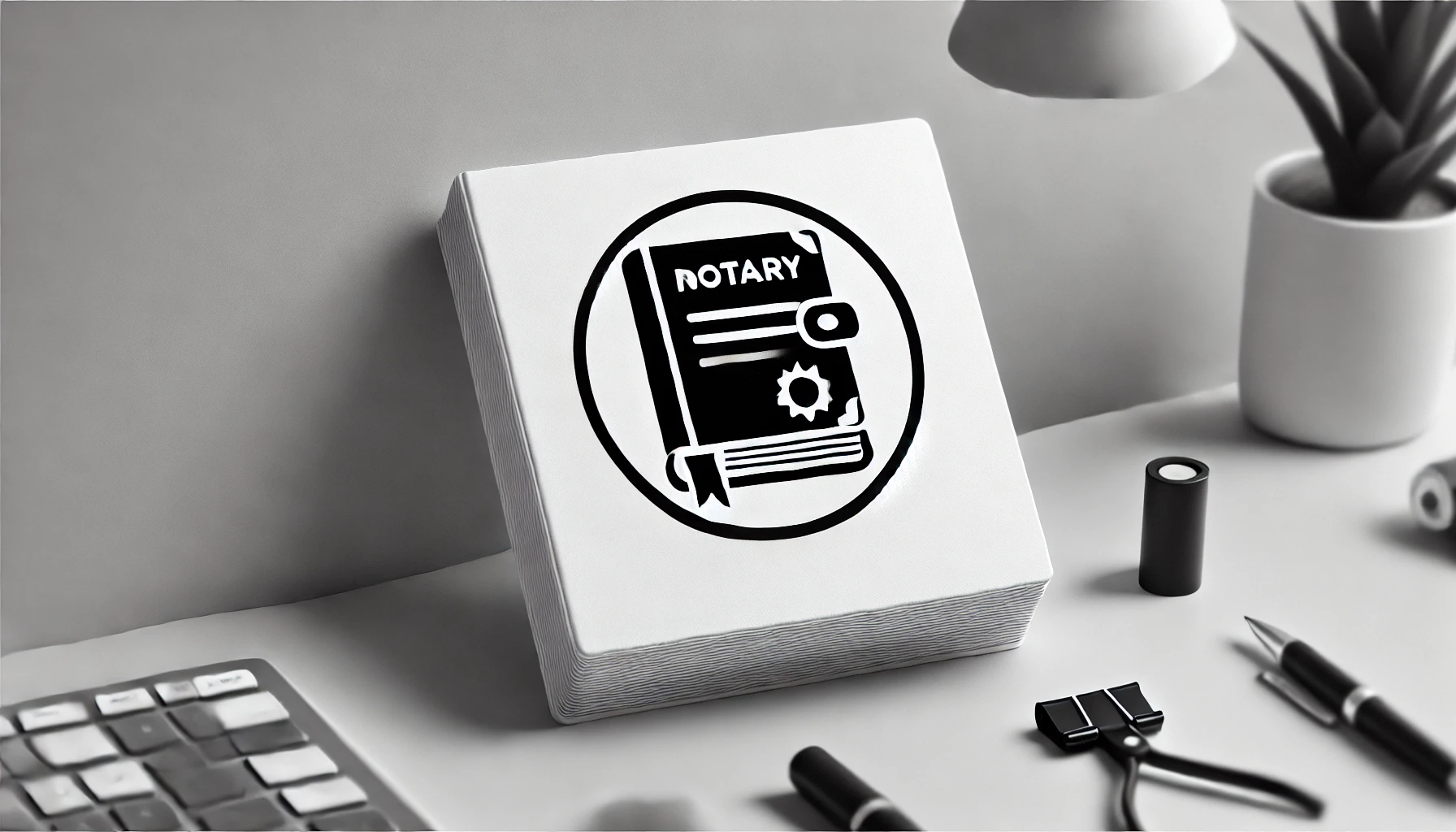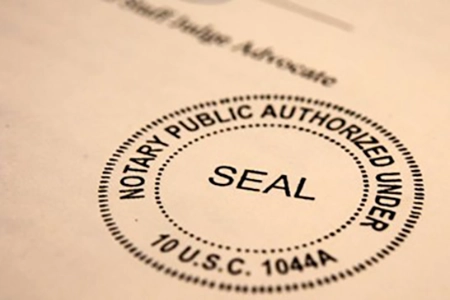
In a significant legal change we recently discussed here, the New York State Senate has voted unanimously for its Bill 8663, which amends state law “to limit the recordkeeping and reporting duties of public notaries only to electronic notarization acts.”
That is, if the notarization isn’t electronic, a notary need not make or keep any connected records.
Our concern is that ample instances of deed and mortgage fraud involve fake or otherwise fraudulent, non-electronic notarizations. Retiring the notary’s journal sets a disturbing precedent.
We believe notaries need to maintain the paper trail, to ensure that extra layer of verifiability for notarizations. We understand the recordkeeping requirement may seem overbearing for lawyers, who already must meet strict codes of professional responsibility. But recordkeeping requirements play an essential role — at the very least as they apply to transfers of real estate by non-attorneys. Preferably, they should be kept in place entirely, for the best protection of the public and all notaries.
Background: A Law Under Pressure
As many states did, New York State revamped its notary laws after the Covid upheaval. Remote notarization became a permanent option for deed transfers and other legal recordings in New York, by a law that took effect the first day of 2023.
That important state law laid out specific requirements for notary publics. Notaries received statewide directions to maintain records on:
- The notarization date, approximate time, and type of transaction(s).
- The name and address of any parties presenting documents, and how many documents were notarized.
- The identity credentials they checked.
- The identification procedures used in person; and for eNotarizations, identification of the technology, the certification authority, and the verification provider.
Non-electronic signings and notarizations were treated the same as electronic notarizations in the new recordkeeping rules.
Attorneys Pushed Back
Notaries, including attorneys who work in busy offices or handle paperwork in courtrooms, balked at having to keep 10-year notary journal records. Led by the New York State Bar, pressure mounted to relax recordkeeping standards.
A proposed amendment showed up in the form of Senate Bill 8663, sponsored by New York Senator Brad Hoylman-Sigal, who introduced it on February 27, 2024.
The amendment would retire the recordkeeping burden entirely for non-electronic notarizations. The new section, Executive Law § 135-c-d, states that notaries “shall not be required to create or retain any other notarial record of any notarial act.” (So they could, but it’s not required.)
And this brings us right up to the present moment. The last action taken on the bill was the publication of Assembly Bill A 7241A on June 5, 2024. So, now we have Assembly and Senate Bill A 7241A / S 8663, sponsored by two judiciary committee chairs — with Charles Lavine in the Assembly joining Sen. Brad Hoylman-Sigal.
Bookkeeping and storage for manual notarizations are unnecessary — that’s the message carried by their amendment. (For electronic signings, notaries will still need to place entries including audio and video files into an electronic journal.)
State-Level Lawyers’ Group Praises Relaxed Standards
The New York State Bar Association’s former president Richard Lewis, who chaired of the Task Force on Notarization to grapple with this very issue, supports the relaxed recordkeeping standards. Bill 8663 will let lawyers “spend less time on paperwork and more time helping New Yorkers in need,” Attorney Lewis says. Lewis said his own law firm stopped offering notarizations because “you’ve got to keep a book on it — and God forbid you lose the book.” A real estate transaction might involve 30+ documents to be notarized, and it’s “too much extra effort,” Lewis said.
The State Bar Association’s current president, Domenick Napoletano, has joined Lewis in calling for a signature from Governor Kathy Hochul.
The Task Force’s report, released last year, found “no showing” that the manual recordkeeping mandate prevents the fraud as intended, yet the requirements, said the report, were costing consumers money.
The state-level lawyers’ group also noted that the law meant to deal with new forms of electronic transactions, but it in fact increased the amount of work accompanying any and all notarizations. In turn, New York regulators have faced growing volumes of records to inspect.
Granted. Recordkeeping and accountability takes people power. But for the fraud victim who seeks justice, trying to trace the history of a fabricated document would be a lot harder without the notary’s records.
Notary Numbers Drop; Recordkeeping Law Takes the Blame
The ranks of notaries public are down sharply, according to new statistics published in the New York Law Journal. by the end of 2023, there were a quarter of a million notaries. That reflects a nearly 10% drop from the previous year, as reported to the Law Journal by Mercedes Padilla of the New York Department of State.
The lawmakers sided with the those who say clerical tasks are causing the number of New York notaries to dwindle. They say the State Bar Association’s position can help address the shortage.
The State Bar has also complained that the storage of the documents “opened the door to exposing private, privileged information between attorneys and clients to the government.” It praised the 2024 amendment for solving this by exempting manual notarizations from any bookkeeping mandate.
But of course, lawyers have always had mechanisms for asserting attorney-client privilege where it applies.
Written Records Still Matter

A notary plays a key role in certifying that a deed was signed by a real person. Particularly in this age of AI, fake but persuasive-looking notarizations will find new ways of being made.
Should a deed or related, notarized documents ever be questioned, a household’s well-being can be upended. All the more so without a key informational tool.
We recognize (as the bill text notes in its definitions section) that when a notary public and a signer physically in the same room, they still use eNotarization (an electronic seal and/or electronic signature) for electronic documents. Thus, completely manual filings are the exception. Nevertheless, insofar as they are still legally significant, manual records and storage continue to matter.
Protect the Integrity of Notarized Documents
Tim Reiniger as director of the National Notary Association, observed how investigators understand notary records as an “invaluable“ fraud-fighter, as the NYC Bar Association observes.
“Indeed,” says the NYC Bar group, “notary journaling is not just a good idea or best practice but has been recognized as a critical component of providing notarial services and protecting the integrity of notarized documents.” This protects the notary, too. Notaries cannot be expected to put past transactions together from memory.
In short, the NYC Bar group defends a notary’s journal as a basic in adhering to a standard of reasonable care.
At Deeds.com, we have to agree.
Supporting References
New York Senate, Session 2023-2024 General Assembly Bill, New York State Legislature page for S 8663: Limits recordkeeping and reporting duties of public notaries to electronic notarization acts (updated Jul. 12, 2024).
Brian Lee for the New York Law Journal (ALM Global, LLC) via Law.com: NY Governor to Mull Rollback of Public Notaries’ Record-Keeping Requirements (Jun. 11, 2024).
Jennifer Andrus for the New York State Bar Association News Center via NYSBA.org: NYSBA Commends Legislature For Passing Law Easing Burdensome Record-Keeping Regulations on Notaries (Jun. 6, 2024).
Sunshine Signing Service (a Florida-based mobile notary and online notary services firm), via SunshineSigning.com: New York Eases Onerous Record Keeping for Notaries (2024).
Deeds.com: Update – New York Works on Clearer Laws for Remote Notaries (Jul. 12, 2024).
And as linked.
Photo source: Defense Visual Information Distribution Service via public domain media / Picryl.
